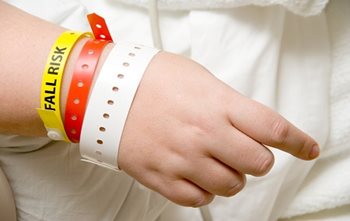Sign in or register for an account.

Fall Prevention: Guidance on Change of Condition
Whenever a long-term care resident develops an acute illness, such as a urinary tract infection, pneumonia, or a fall in blood sugar, for example, the individual is said to be undergoing a ‘change in condition’(COC). Any sudden illness that causes COC can increase the risk of falling. This is well known by the nursing staff. However, there are a host of changes that can occur to a resident’s physical status (such as in their ability to walk and keep balance) or cognitive status (such as an inability to understand conversation), which can place individuals at risk of falling, but their presentation may not be as dramatic as an acute illness. The ability to detect COC at its easiest stages in residents who are at fall risk can greatly improve the ability to prevent falls from occurring. Small changes may go unnoticed unless the caregiver knows what to look for. The purpose of this course is to assist nursing and other staff in long-term care facilities (nursing homes and assisted living facilities) in identifying and recognizing COC in common health conditions that place residents at risk of falling.
Questions? Check out our FAQs page and How Online IV Certification Works!
Objectives
Upon completion of this course, participants will be able to:
- Discuss health conditions associated with fall risk.
- Recognize the need for change, especially in residents at fall risk.
- Identify existing screening/assessment tools to quickly identify baseline health conditions and COC.
- Describe important signs and symptoms in identifying COC.
- List tools available to communicate COC.
Curriculum
Chapter 1: Introduction
- Fall Risk Factors
- What is COC?
- Health Conditions and Aging
- Detecting COC
- Fall Risk Domains
- Mobility
- Vision
- Hearing
- Chronic Pain
- Urinary Incontinence
- Postural Hypotension
- Insomnia
- Medications
- Nutrition
- Cognitive Impairment
- Alzheimer's Disease
- Cautions for Screening and Assessing Cognitive Function
- Delirium
- Depression
- Anxiety
- Fear of Falling
- Potential Hazards
- Ambulation
- Lighting
- Furnishing
- Bathrooms
- The Environment and COC
- Early Warning Tools
Chapter 8: Summary
- Summary
- References
- California Bill 241
- Implicit Bias in Healthcare
- What is Implicit Bias?
- Implications of Implicit Bias in Healthcare
- How to Reduce Implicit Bias
Price: $24.00
Contact Hours: 2

Course Author

Rein Tideiksaar
Rein Tideiksaar, PhD, PA-C, or Dr. Rein as he is commonly referred to, is the president of Fall Prevent, LLC, Blackwood, New Jersey, a consulting company that provides educational, legal, and marketing services related to fall prevention in the elderly.
Dr. Tideiksaar is a gerontologist, which is a health care professional who specializes in working with elderly patients, and a geriatric physician's assistant. He has been active in the area of fall prevention for over thirty years.
Course Accreditation
See our Accreditation Statements page to view our accreditation information.